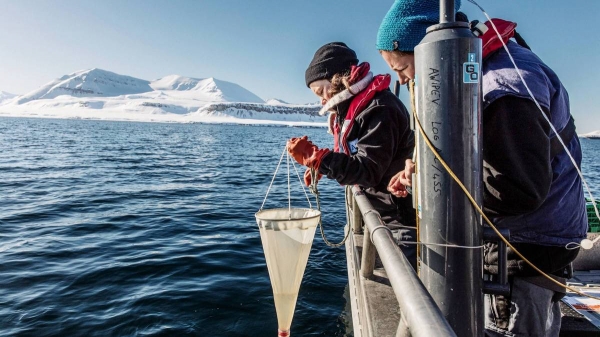The new research project YESSS - Year-round EcoSystem Study on Svalbard - is focusing on how Arctic warming is changing over the seasons in Svalbard.
The new research project YESSS - Year-round EcoSystem Study on Svalbard - is focusing on how Arctic warming is changing over the seasons in Svalbard. The team of around 30 scientists observes the life cycles, foraging and overwintering strategies of selected key species all year round and conducts experiments at the AWIPEV station on Svalbard. The Federal Ministry of Education and Research is funding the project, which is coordinated by the Alfred Wegener Institute, with 2.7 million euros until the end of 2026.
The Arctic is warming more quickly than any other place on Earth. The melting glaciers and dwindling sea ice there have become an iconic image of climate change. But also the entire seasonal development of plants and animals is changing, possibly with serious ecological consequences.
Researchers from seven universities and research institutions met at the Alfred Wegener Institute, Helmholtz Centre for Polar and Marine Research (AWI) in Bremerhaven from 6-8 February 2024 for the kick-off meeting for the 40-month polar research project YESSS. Under the leadership of the AWI, they want to investigate the seasonal aspects of warming in the Arctic, e.g. with respect to life cycles, foraging and overwintering. Until now, little is known about this because our understanding of such ecological processes has mainly been based on studies carried out in spring and summer. This is now set to change: YESSS stands for “Year-round EcoSystem Study on Svalbard”, so it is about year-round research being conducted on the Arctic Archipelago of Svalbard. As part of the German government’s polar strategy, the Federal Ministry of Research and Education (BMBF) is funding the project with around 2.7 million euros.
Read more at Alfred Wegener Institute, Helmholtz Centre for Polar and Marine Research
Image: AWI biologist Dr Clara Hoppe (right and, and Dr Klara Wolf are taking algae samples at Kongsfjord, Spitsbergen, which they are going to use for analyzing the chemical composition of the phytoplankton and how much carbon the algae have bound. (Photo Credit: Paolo Verzone)




